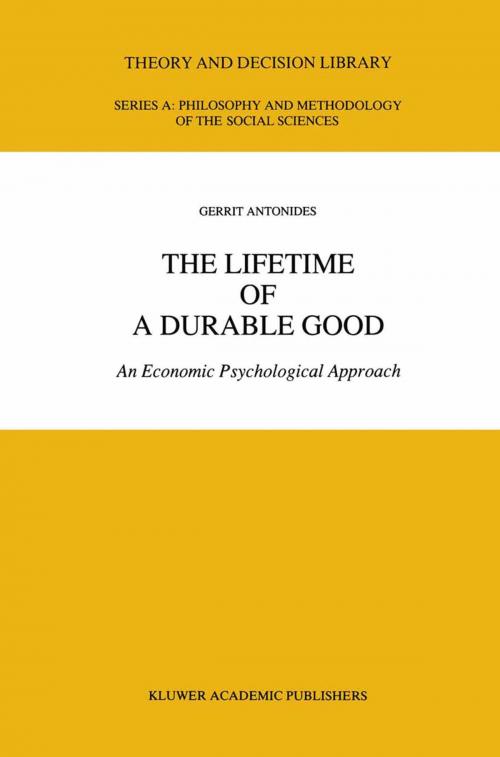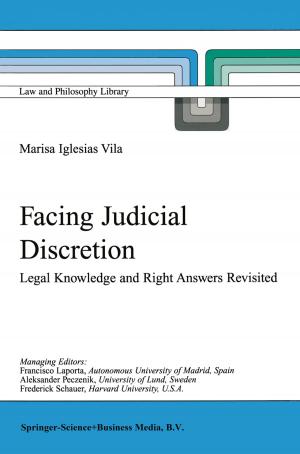The Lifetime of a Durable Good
An Economic Psychological Approach
Business & Finance, Management & Leadership, Management Science, Economics, Economic Development| Author: | G. Antonides | ISBN: | 9789400919389 |
| Publisher: | Springer Netherlands | Publication: | December 6, 2012 |
| Imprint: | Springer | Language: | English |
| Author: | G. Antonides |
| ISBN: | 9789400919389 |
| Publisher: | Springer Netherlands |
| Publication: | December 6, 2012 |
| Imprint: | Springer |
| Language: | English |
As a psychologist by education, my interest is in how people solve problems. At the Economic Institute of Leyden Universi ty, I learned that economists study human behavior too, although their studies are limited to economic affairs. At the Institute of Scientific Research on Consumer Affairs became (SWOKA), I aware of the needs of consumer organizations and the government for consumer research to base their policy on. At Erasmus University Rotterdam, I got the opportunity to integrate my interests and knowledge into this book. The first part of the book attempts to integrate psychological theories of attitude, perception, motivation and decision into economics. Both disciplines are concerned with human behavior, and the economic paradigm of demand, subj ect to restrictions, is combined with the psychological tradition of direct measurements of perceptions and motivations. This results in a micro-model of economic choice that can be tested by means of information obtained directly from consumers. The empirical study deals with the problem of scrapping a durable consumption good. By means of a consumer survey, the micro-model of choice is applied to the decision to scrap a durable good, or to repair the good in case of a defect. This individual decision obviously is connected with the large scale problem of waste, and with the manufacturer's problem of producing durable goods with a certain quality and durabili ty.
As a psychologist by education, my interest is in how people solve problems. At the Economic Institute of Leyden Universi ty, I learned that economists study human behavior too, although their studies are limited to economic affairs. At the Institute of Scientific Research on Consumer Affairs became (SWOKA), I aware of the needs of consumer organizations and the government for consumer research to base their policy on. At Erasmus University Rotterdam, I got the opportunity to integrate my interests and knowledge into this book. The first part of the book attempts to integrate psychological theories of attitude, perception, motivation and decision into economics. Both disciplines are concerned with human behavior, and the economic paradigm of demand, subj ect to restrictions, is combined with the psychological tradition of direct measurements of perceptions and motivations. This results in a micro-model of economic choice that can be tested by means of information obtained directly from consumers. The empirical study deals with the problem of scrapping a durable consumption good. By means of a consumer survey, the micro-model of choice is applied to the decision to scrap a durable good, or to repair the good in case of a defect. This individual decision obviously is connected with the large scale problem of waste, and with the manufacturer's problem of producing durable goods with a certain quality and durabili ty.















